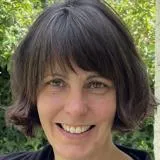The unequal participation of young people in science is a pressing concern for educators, future employers and policy-makers alike. Considerable effort has thus been directed at trying to improve young people’s engagement and interest in science, yet patterns of participation remain resistant to change.
The ASPIRES Research projects, initiated at King’s by Prof Louise Archer, have shown that interventions built on raising interest are not enough. This is because young people’s motivations towards science are more fundamentally shaped by social class, gender and ethnicity. Success in science for many students is also constrained by the ways in which science is traditionally taught.
The ASPIRES projects conducted over 39,000 quantitative surveys of young people’s science-related interests, activities and perceptions. The surveys followed young people from year 6, the last year of primary school, through to year 13, the last year of secondary school.
The data found most young people reported liking and valuing science, but few wanted to become scientists. Across all age groups, the students who were more likely to express science-related ambitions and perceive themselves to be good at science were boys from socio-economically advantaged families. Black students overwhelmingly saw the careers of scientist or science teacher as ‘not for me’ despite being interested in science. Irrespective of class, gender and ethnicity, students with a family member with a science-related qualification and science-related job were significantly more likely to have science-related aspirations.
To explain these differences in aspirations and perceptions, the research team proposed the concept of ‘science capital’ – the science-related knowledge, attitudes, experiences and connections that an individual acquires and builds through their life. They found that the more ‘science capital’ a student has, the more likely they are to see themselves as ‘a science person’ and continue with post-16 science.
Further study, as part of the Enterprising Science project, researched the ways in which the concept of science capital might inform teaching and learning approaches to support more young people from more diverse backgrounds feel able to engage in science. The research also highlighted the ways in which the systems and structures of school science might be changed to value and build upon the varied science-related knowledge and skills that learners bring from their homes and communities. By broadening what counts in this way, learners gain greater voice and agency in science-related aspects that matter to them.
The concept of ‘science capital’ and the detailed findings from the ASPIRES and Enterprising Science research have formed the bedrock for the design and implementation of new policies, initiatives and assessments aimed at widening participation. Such initiatives recognise the importance of building learners’ science identities from an early age and the role played by families and schools in forming young people’s science-related aspirations.
For example, in Scotland, widening the participation in STEM education and careers is now framed as bridging the gap in science capital. In England, the Ofsted-endorsed Primary Science Quality Mark (PSQM) for schools introduced ‘a commitment to developing all children’s science capital’ as a new criterion. The Science Museum Group has made growing the ‘science capital’ of their audiences a core priority in their 2017-2030 strategy, stating, “We use the principles of science capital to shape all science engagement experiences... our organising principle is to build science capital to enrich people’s lives and enhance their contributions to society.”


